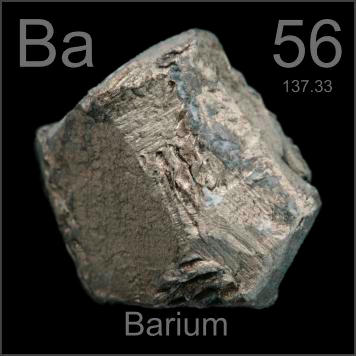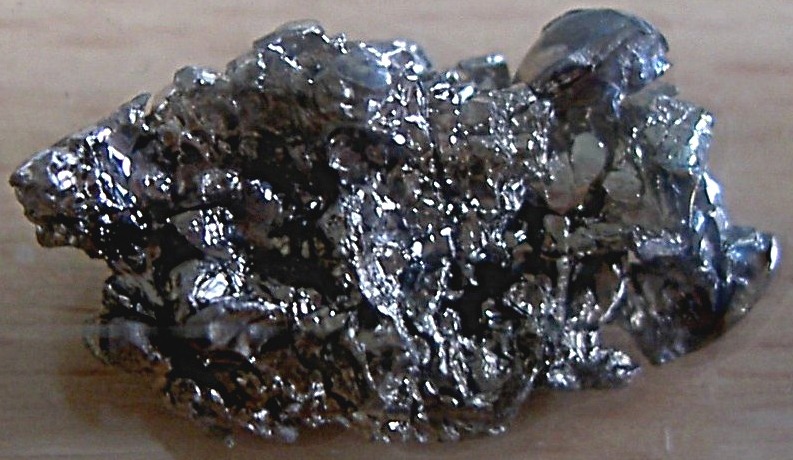
noun Chemistry.
- a whitish, malleable, active, divalent, metallic element, occurring in combination chiefly as barite or as witherite. Symbol: Ba; atomic weight: 137.34; atomic number: 56; specific gravity: 3.5 at 20°C.
noun
- a soft silvery-white metallic element of the alkaline earth group. It is used in bearing alloys and compounds are used as pigments. Symbol: Ba; atomic no: 56; atomic wt: 137.327; valency: 2; relative density: 3.5; melting pt: 729°C; boiling pt: 1805°C
1808, coined in Modern Latin by its discoverer, English chemist Sir Humphrey Davy (1778-1829), because it was present in the mineral barytes “heavy spar” (barium sulphate), so named by Lavoisier from Greek barys “heavy” (see grave (adj.)). The metal is actually relatively light.
n. Symbol Ba
- A soft alkaline-earth metal that is a component in compounds used in radiography and as radiopaque media. Atomic number 56.
Ba
- A soft, silvery-white metallic element of the alkaline-earth group. It occurs only in combination with other elements, especially in barite. Barium compounds are used in x-raying the digestive system and in making fireworks and white pigments. Atomic number 56; atomic weight 137.33; melting point 725°C; boiling point 1,140°C; specific gravity 3.50; valence 2. See Periodic Table.
 Liberal Dictionary English Dictionary
Liberal Dictionary English Dictionary

